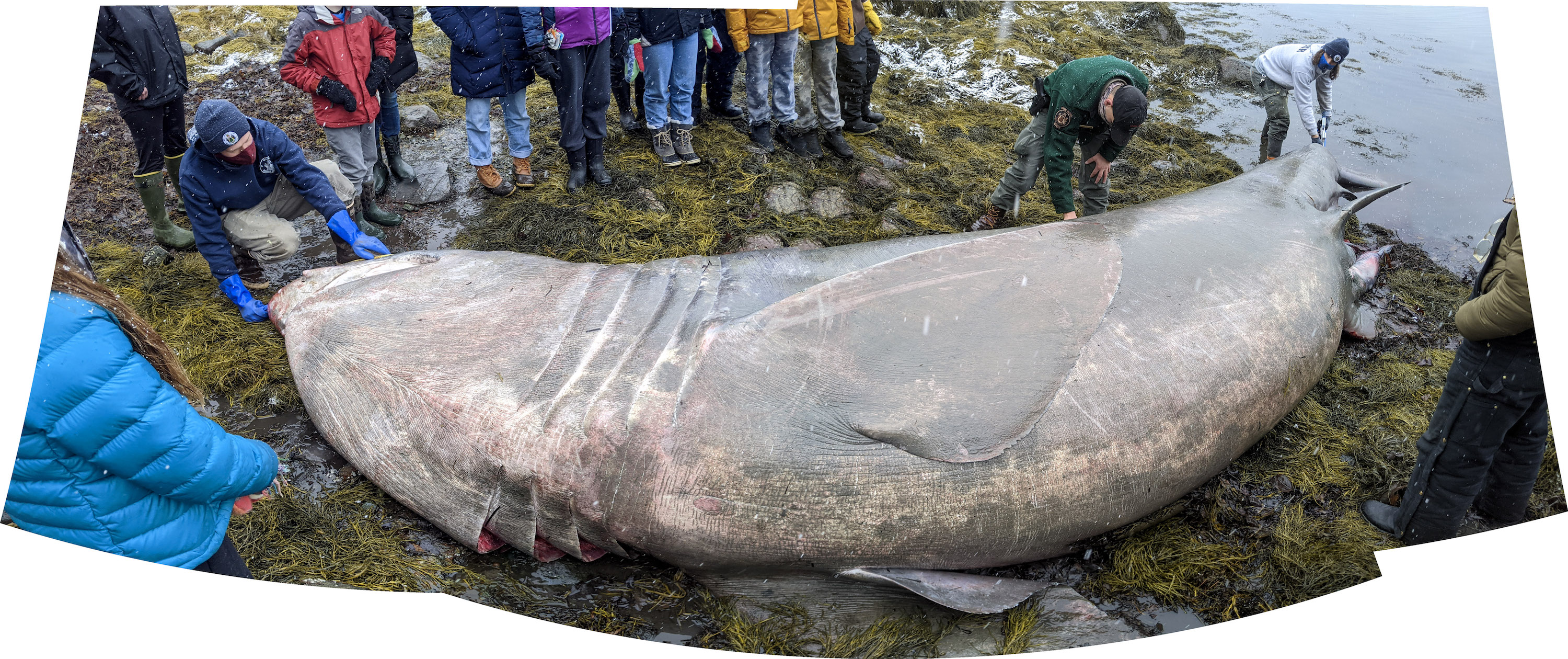A truck-size shark washed up on a Maine beach. How did it die?
The 26-foot-long shark is the second-largest fish species on Earth.

Get the world’s most fascinating discoveries delivered straight to your inbox.
You are now subscribed
Your newsletter sign-up was successful
Want to add more newsletters?

Delivered Daily
Daily Newsletter
Sign up for the latest discoveries, groundbreaking research and fascinating breakthroughs that impact you and the wider world direct to your inbox.

Once a week
Life's Little Mysteries
Feed your curiosity with an exclusive mystery every week, solved with science and delivered direct to your inbox before it's seen anywhere else.

Once a week
How It Works
Sign up to our free science & technology newsletter for your weekly fix of fascinating articles, quick quizzes, amazing images, and more

Delivered daily
Space.com Newsletter
Breaking space news, the latest updates on rocket launches, skywatching events and more!

Once a month
Watch This Space
Sign up to our monthly entertainment newsletter to keep up with all our coverage of the latest sci-fi and space movies, tv shows, games and books.

Once a week
Night Sky This Week
Discover this week's must-see night sky events, moon phases, and stunning astrophotos. Sign up for our skywatching newsletter and explore the universe with us!
Join the club
Get full access to premium articles, exclusive features and a growing list of member rewards.
Fishers in Bremen, Maine, discovered a dead shark the size of a pickup truck on their local shore Tuesday (Jan. 5), according to news sources.
Officials with the Maine Department of Marine Resources identified the gargantuan specimen as a male basking shark (Cetorhinus maximus, which roughly translates to "biggest-nosed marine monster") and measured it at 26 feet (8 meters) long. As of today (Jan. 7), the cause of death remains unknown.
Basking sharks are the second-largest fish in the world, reaching lengths of up to 40 feet (12 m), according to the Florida Museum. Only the elusive whale shark, which can grow to be more than 60 feet (18 m), is larger. Basking sharks are found in warm waters all over the world, sometimes migrating thousands of miles, and are the largest sharks that cruise the waters off New England.
Related: 10 times sharks made our jaws drop in 2020
Despite their imposing appearance, basking sharks are mostly harmless to humans. They feed by swimming forward with their huge mouths open, slurping up thousands of tons of seawater every hour and filtering out tasty zooplankton and other tiny marine invertebrates through their gills, according to the Florida Museum.
These sharks often feed near the surface, appearing as though they're basking in the sun (hence, their name). While a basking shark probably wouldn't bite you, it might ram you with its rough-and-tough body if you found yourself in its way, the Florida Museum warns.
And don't forget to look up: Basking sharks can leap up to 4 feet (1.2 m) out of the water, researchers found in a 2018 study.
*Editor's note: This article has been edited to clarify that Tanner Fields did not discover the beached shark, as an earlier version of this story claimed.
Get the world’s most fascinating discoveries delivered straight to your inbox.
Originally published on Live Science.

Brandon is the space / physics editor at Live Science. With more than 20 years of editorial experience, his writing has appeared in The Washington Post, Reader's Digest, CBS.com, the Richard Dawkins Foundation website and other outlets. He holds a bachelor's degree in creative writing from the University of Arizona, with minors in journalism and media arts. His interests include black holes, asteroids and comets, and the search for extraterrestrial life.
 Live Science Plus
Live Science Plus











